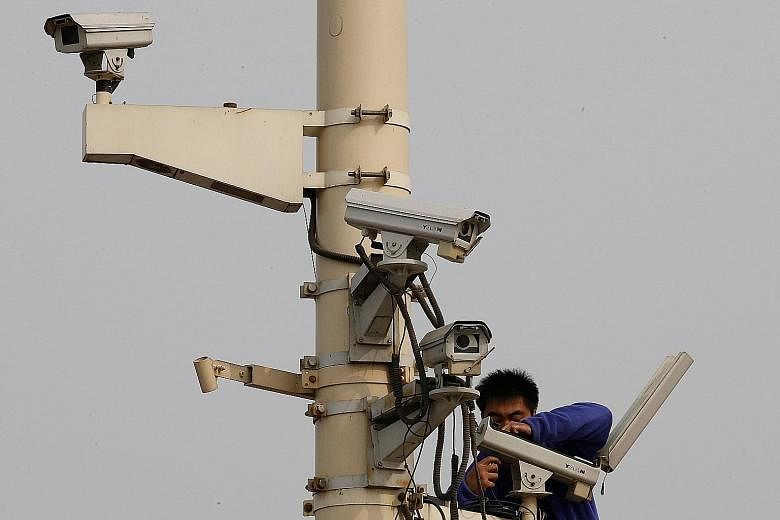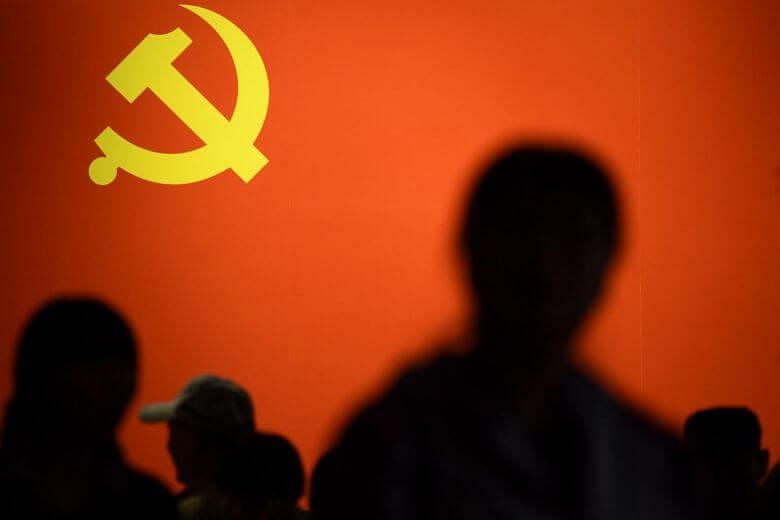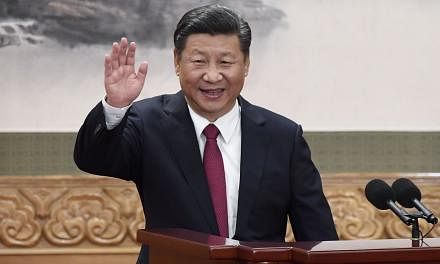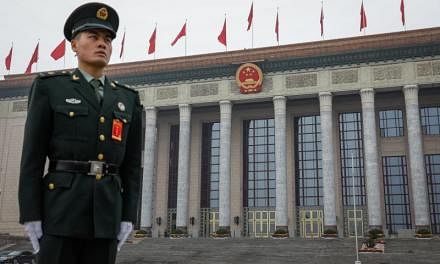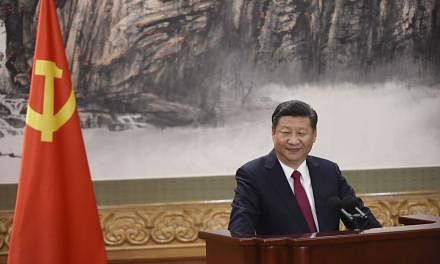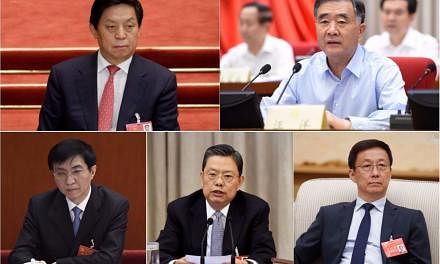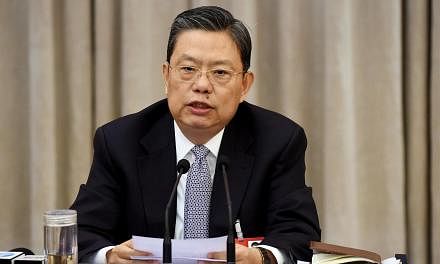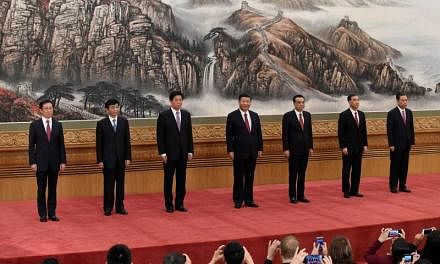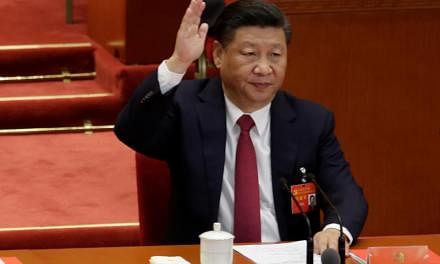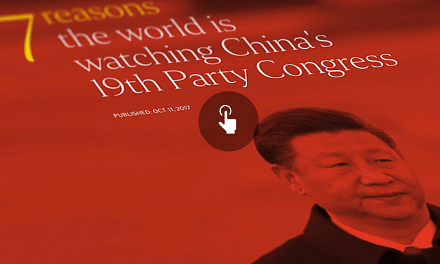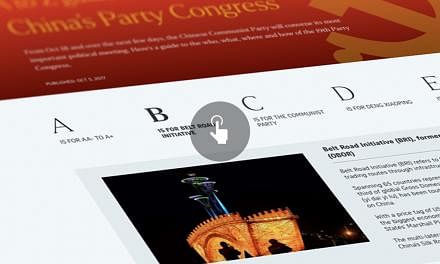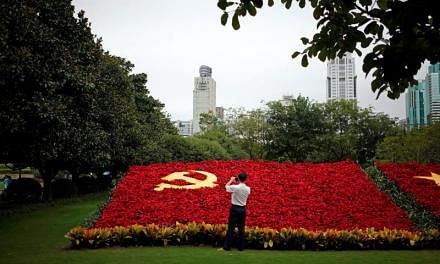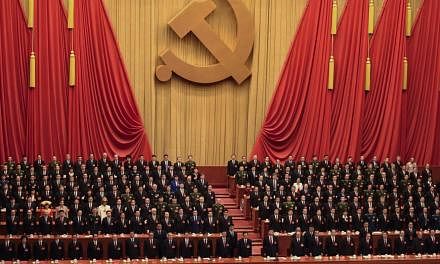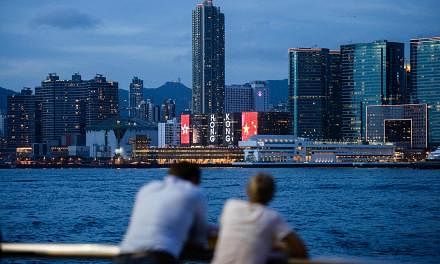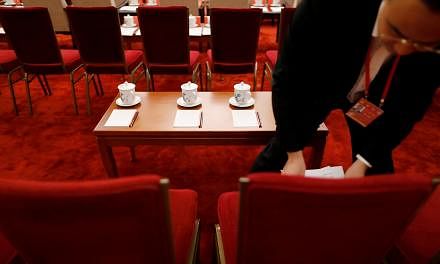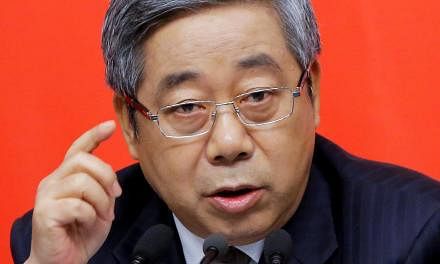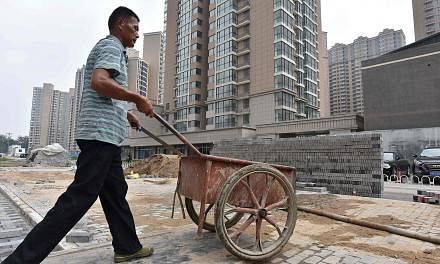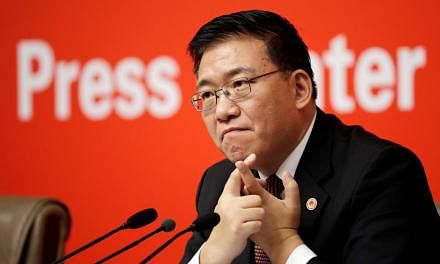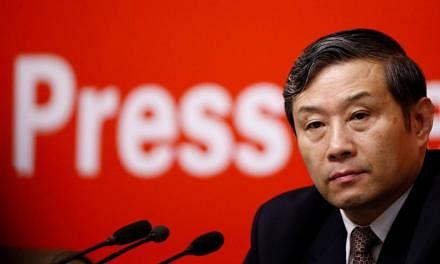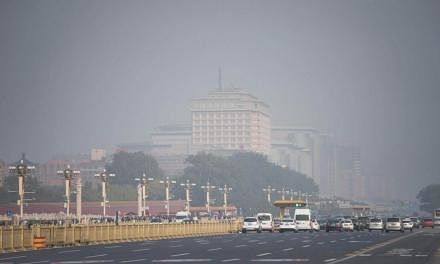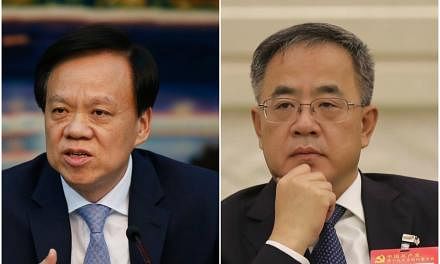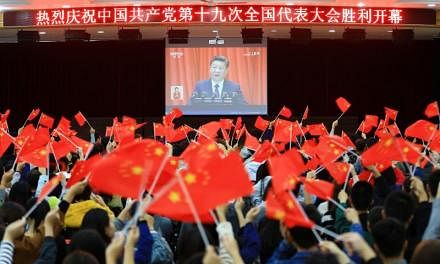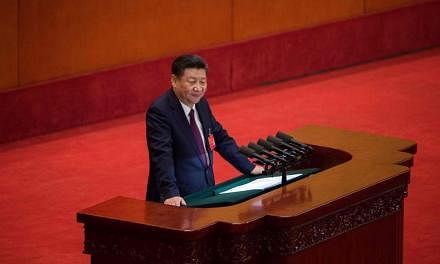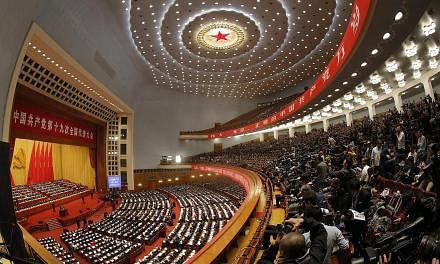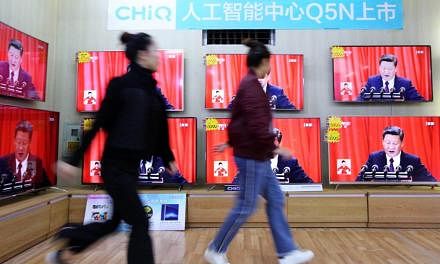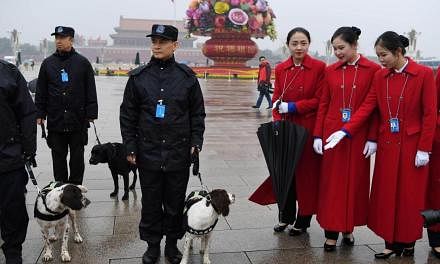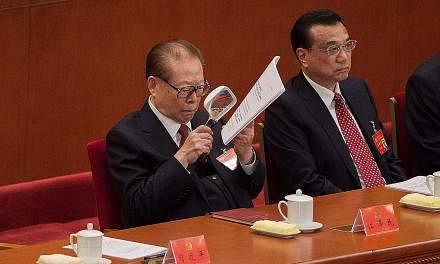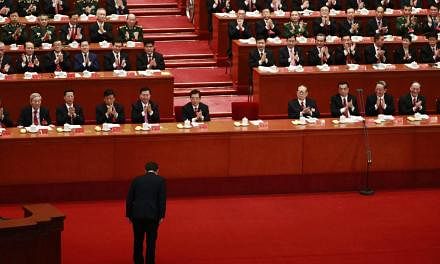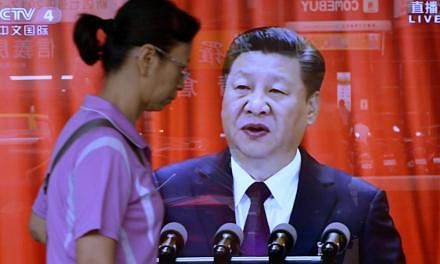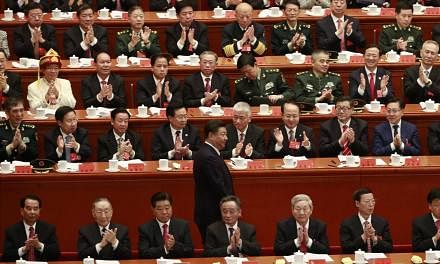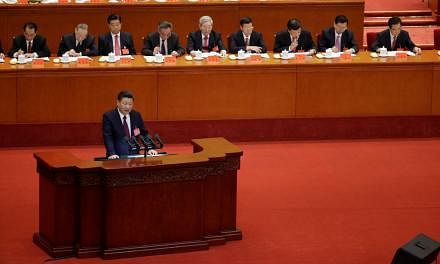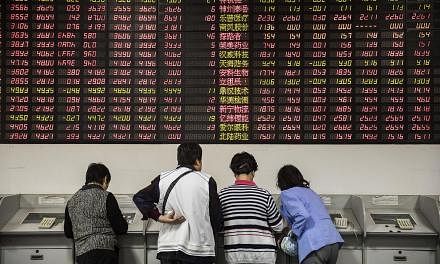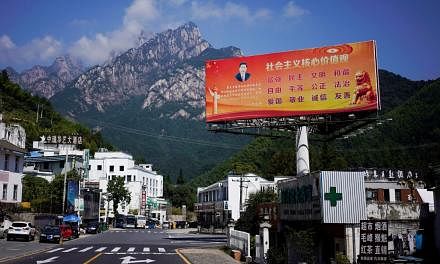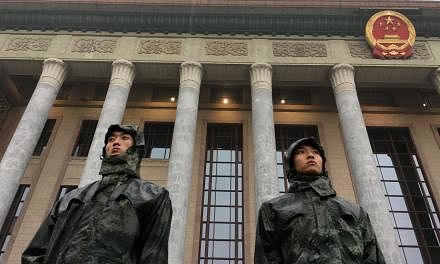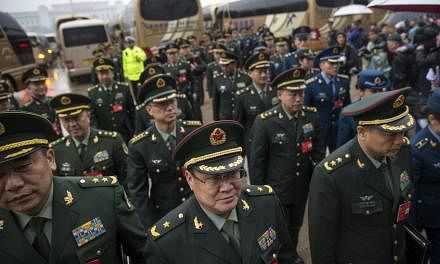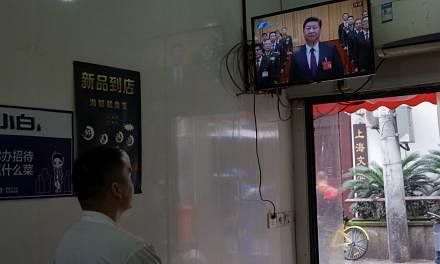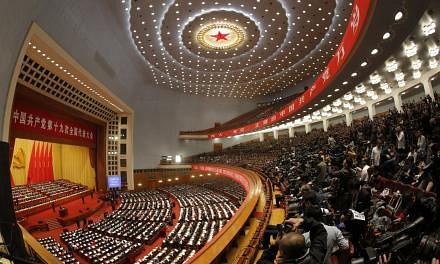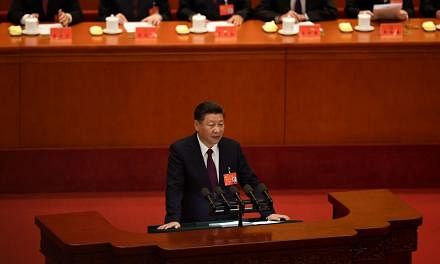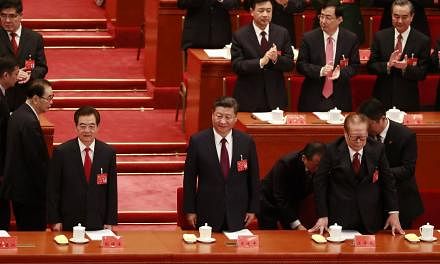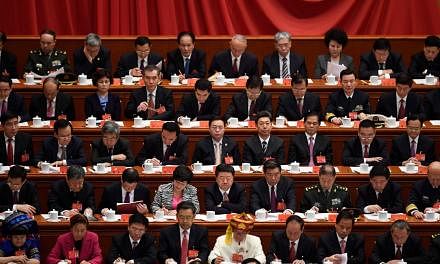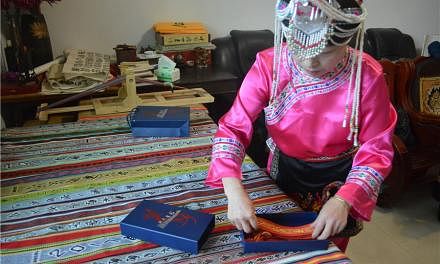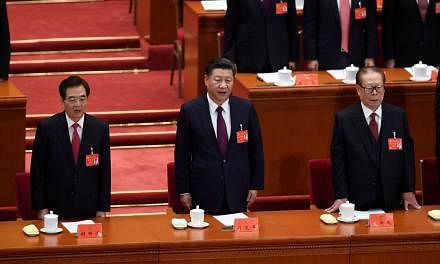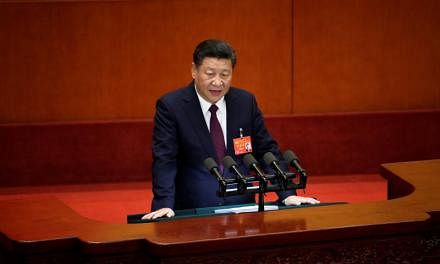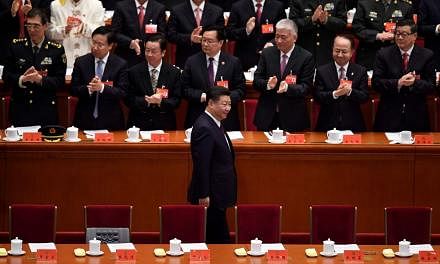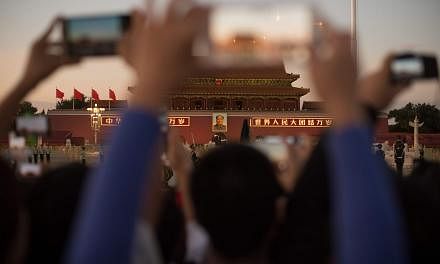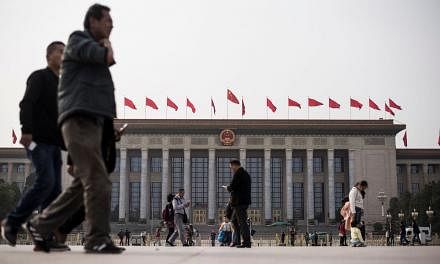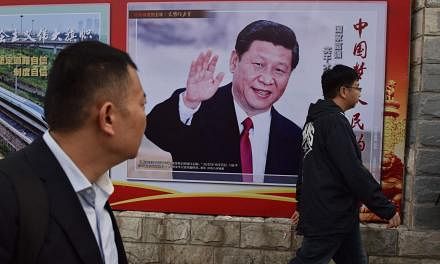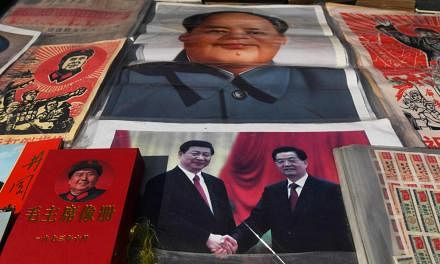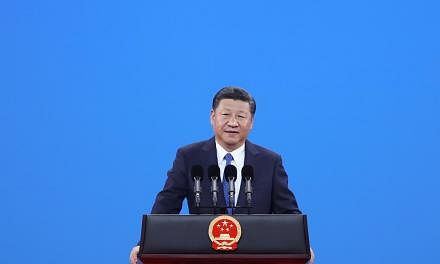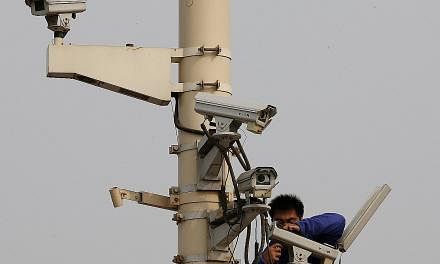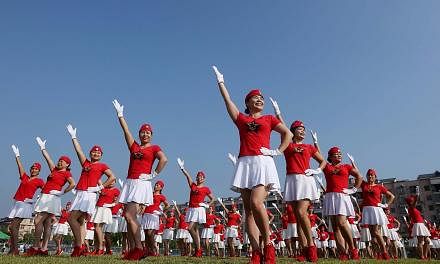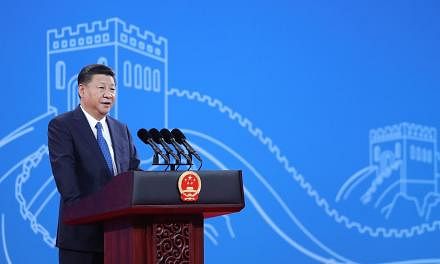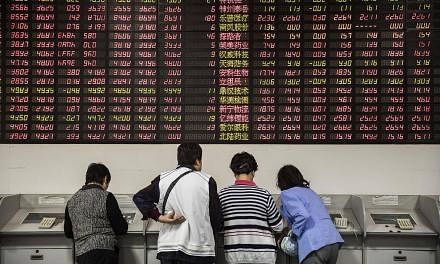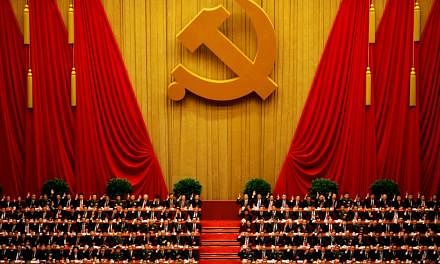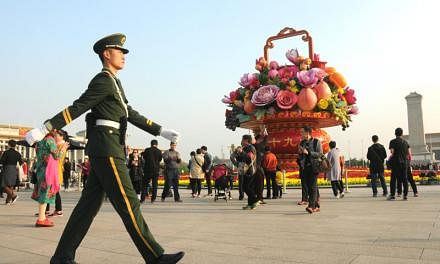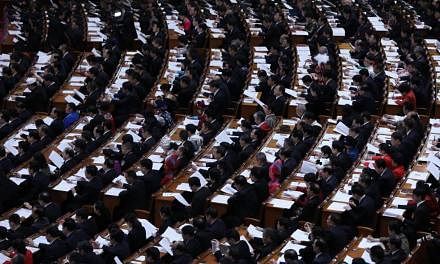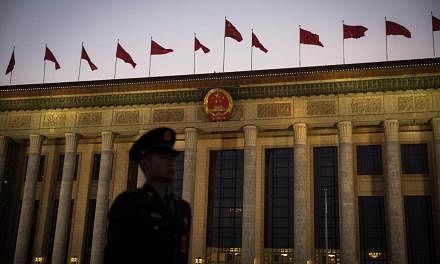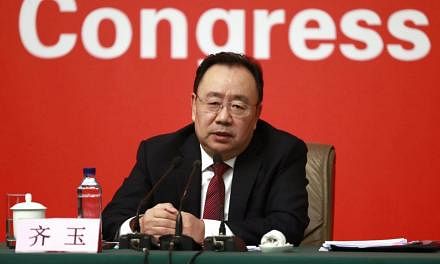BEIJING - China earlier this week announced that 1.34 million officials have been punished for corruption since 2013, showing how far-reaching President Xi Jinping's anti-graft campaign has been.
These were low-level officials, said the Chinese Communist Party's (CCP) anti-graft body, the Central Commission for Discipline Inspection (CCDI). But the CCDI was also going after high-level officials, right up to last month, with the expulsion from the CCP and dismissal from publicoffice of Mr Sun Zhengcai, former Chongqing party boss and potential successor to Mr Xi, amid a corruption probe.
Anti-corruption campaigns in China are not new, but none have been as aggressive, deep and lasting as this one under Mr Xi, notes political scientist Stein Ringen of Oxford University.
It looks set to continue after next week's 19th national congress of the CCP, if at a more moderate pace.
It was a sensation when Zhou Yongkang, former security czar and former member of China's top decision-making body, was sentenced to life in prison for corruption, in the middle of 2015.
The move against Zhou had broken an unwritten rule that members of the highest echelon of power, the Politburo Standing Committee (PSC), would not be touched in any criminal probe. Mr Xi had done the unthinkable in his anti-corruption drive that began soon after he took over the reins of the CCP in 2012.
Having reached this peak, however, some observers thought Mr Xi might wind things down. After all, Zhou, a key element of resistance to his authority, had been removed.
Instead, under his anti-graft czar Wang Qishan, the campaign to "kill tigers and swat flies" - meaning to go after both senior officials and the rank and file - continued throughout the Mr Xi's first five-year term.
It was expanded to include "spiders" who sit at the centre of economic fiefdoms, notes Professor Ringen, and "foxes", corrupt officials who have fled overseas. Nearly 2,600 fugitives have been extradited or repatriated and 8.6 billion yuan (S$1.8 billion) worth of assets recovered, said the CCDI in January.
Professor Andrew Wedeman of Georgia State University says 213 "tigers" - officials of vice-ministerial rank and above (including party and state officials and senior executives of state-owned firms) and military officials of the rank major-general and above - had been "implicated" as of September last year.
Among those found guilty and handed prison terms over the past few years were two former vice-chairmen of the Central Military Commission General Xu Caihou and General Guo Boxiong, and former director of the party's Central Committee General Office Ling Jihua.
Apart from their corrupt ways, they were seen to be part of powerful vested interest groups that could hamper Mr Xi's policies including economic and military reform.
In other words, the anti-corruption drive is a way for Mr Xi to consolidate his grip on power over party and state. Cleaning up the party of corruption and instilling discipline among its cadres are also part of Mr Xi's broader motive to staunch the rot in the party and increase its legitimacy in the eyes of the public.
Early in his rule, Mr Xi said there were "many pressing problems within the party that need to be resolved, particularly corruption".
The anti-graft drive was needed to restore confidence of the public in the party that has been eroded by corruption, and strengthen stability and unity by eliminating factional opposition to Mr Xi's rule, among other things, noted China-watcher Robert Lawrence Kuhn. It would also facilitate reform by disrupting vested interest groups such as the oil and gas clique, of which Zhou was a key member.
The campaign will continue, if at a lower tempo, not least because it is popular and still useful to make sure party cadres follow Mr Xi's line, says Professor Steve Tsang of the School of Oriental and African Studies, University of London.
There are signs it will be institutionalised as well. Last October, the CCP adopted two documents aimed at strengthening party discipline and intra-party supervision. A national supervisory commission is being planned, under which various anti-corruption apparatuses of different party and state departments will be streamlined.
However, some analysts have said that it is impossible for Mr Xi to keep the economy going under state domination and eradicate corruption at the same time.
This is because Mr Xi's sweeping anti-corruption campaign has stalled economic growth, notes Assistant Professor Ang Yuen Yuen of the University of Michigan.
"The campaign has forced local officials to become highly risk-averse and unwilling to attempt policy innovations on the ground," she writes on The Conversation website. "But China's speedy growth in the past decades was precisely fuelled by the bold initiatives and discretionary actions of local leaders."
Local governments have been the primary agents of improvisation and adaptation to changing conditions. But if Mr Xi wants a strictly disciplined bureaucracy with little room for deviance, he cannot expect it to accomplish much. The Chinese leadership needs to rethink the role of local governments.
Others are of the view that while high-level corruption may be dealt with harshly, low-level graft should be handled in such a way as not to paralyse the system. What is tricky for Mr Xi is calibrating it right.
